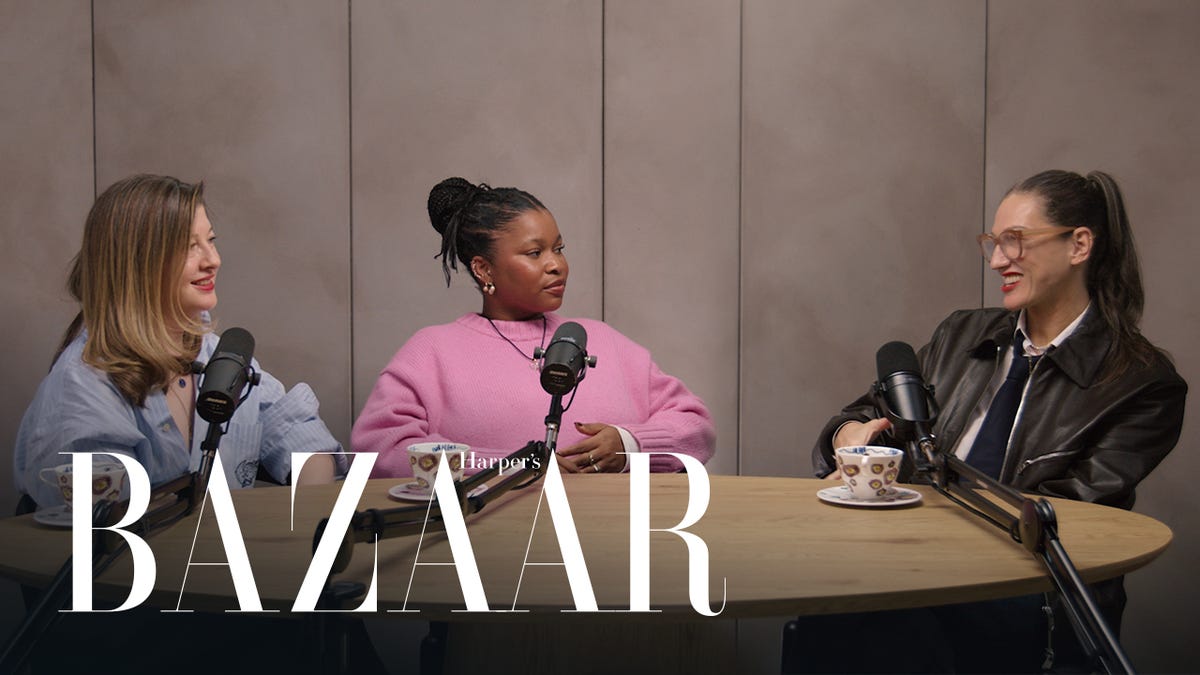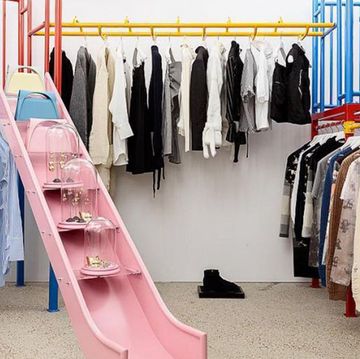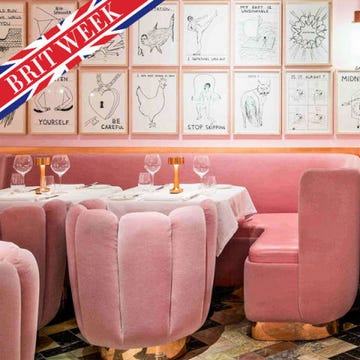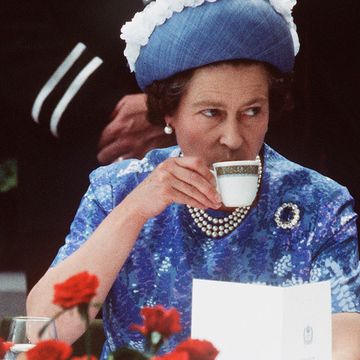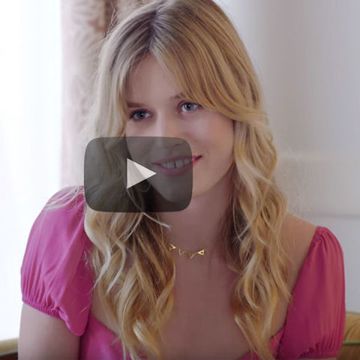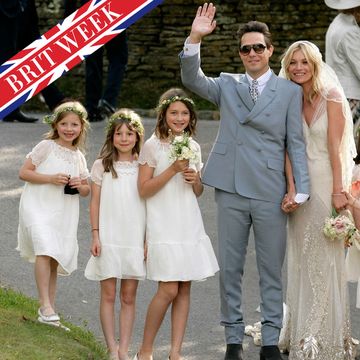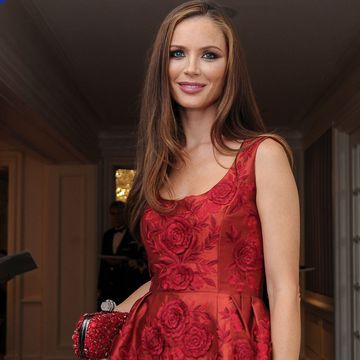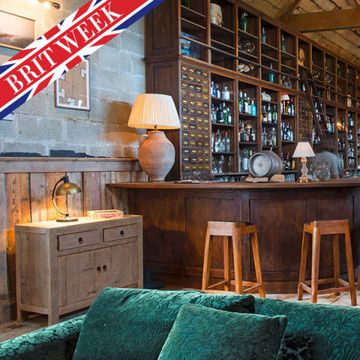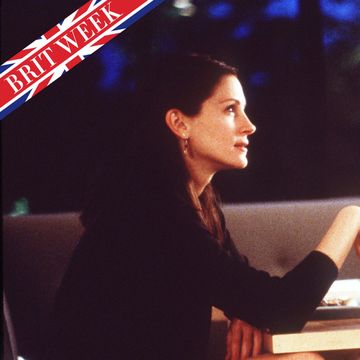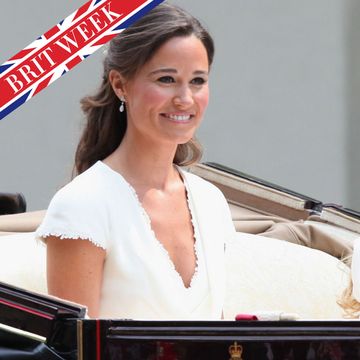On June 23, 2016, more than 30 million people in the United Kingdom voted to leave the European Union. There are a lot of people unhappy with the decision, but if Britain believes it can stand on its own, we thought we ought to find out why. This week, BAZAAR.com is bringing you the best of everything from across the pond (fashion, food, culture, etiquette and more) in what we have coined, #BritWeek.
"There's a huge difference in etiquette between Brits and Americans," says Lisa Vanderpump, the star of Bravo's The Real Housewives of Beverly Hills, in her West London accent. The 55-year-old, who has owned 26 restaurants (which currently includes Villa Blanca in Beverly Hills and SUR in West Hollywood) with her husband, Ken Todd, admits she has "adopted the American way of dining," but old habits die hard. "Americans are just rather loud," she says. "And please, I'm not trying to patronize—but it's considered kind of quite rude to be talking so other people can't hear in a restaurant."
We asked Vanderpump to give BAZAAR.com a crash course in British vs. American etiquette—on everything from dining to hosting—and she kindly obliged, before adding with a laugh: "One thing I would like from Harper's Bazaar, I'd like them to please put me on the cover. That is etiquette. In England, you reciprocate."
Dining:
"When people ask for their food to go, it's the funniest thing to me. In England, they would look at you like you're bonkers if you said, 'Can I take my steak and kidney pudding with me?' They don't have containers. They're not prepared for that in England, no one takes their food to go. Whereas here, it's almost like it's a compliment to take your food to go. Like, 'It was so delicious, I want to eat it tomorrow, can I have it to go?' You'll never see anyone walking out of a restaurant in England with their dinner under their arm."
"Americans abandon the knife. They cut with the knife, and they pass the fork to the right and lose the knife which takes twice as long. We push the fork into the knife to collect the food, so we only do one action, they do two."
"In England, you have to put the knife and fork together on the plate to signal you are finished. When the knife and fork are put together, that means you're done. Otherwise how does the waiter know you're finished? When you leave the knife and the fork spread in the eating position and expect it to be cleared, which most Americans do, that's actually considered rude in England. It's not an aristocratic standard that I'm talking about. I'm talking about basic 101 in England, that you just put your knife and fork together."
"The bill doesn't arrive until you ask for it in England. Here, the bill's just dropped on the table. So when you're in London, don't wait for the check!"
"In England, you don't clear the plate until everybody's finished eating because people often feel that it puts pressure on those still eating, as though they need to catch up. But in the U.S., you often see the plate cleared. People come and say, 'Let me get that out of your way,' and somebody's then left eating on their own."
"The social interaction between the waiters and waitresses and customers is interesting. You often don't have that in England—that kind of, 'Hey! Hi! My name's so and so'. It's more of a service in England, which is more curt and not as friendly—not as familiar. That can be construed by Americans when they go to Britain as being a little snobby."
"I use the word loosely but as a celebrity, I often get approached at the table here. People come up like, 'I love your show!' and I would never experience that in England. I don't mind it at all but it's very different."
Hosting:
"In England, it's much more commonplace to entertain at home in the first place, to invite people to have dinner parties. Certainly, when we lived in the countryside in England, I would be invited to a dinner party a week whereas here it's much rarer, really. People don't entertain in their homes as much. I don't know why."
"You always arrive with a hostess gift in England. Chocolates are a big thing. People often take chocolates that you can have with coffee or with dessert. I don't believe in ever taking flowers that need to be arranged because, where are they going to be put? In the sink when you're cooking? If you take flowers, they should either be an arrangement of flowers that you can put on the bar, or something like a candle. When people say 'can I bring anything?' the hostess is going say, 'no, just bring yourself,' but I would never go to somebody's house without something."
"A good hostess will always avoid certain subjects and steer the conversation; changing it if she sees things getting heated."
"When you entertain, it's nice to have a couple of specialized drinks. We have LVP Sangria which is our own take on the Pimms cup—a very famous drink in England. To have a drink like that to serve with fruit in a jug, it looks like you've made a big effort rather than just having wine. It's really important when entertaining for your guests to feel like you've made some kind of effort for them."
"If you are a guest, it's unacceptable to be more than 10 or 15 minutes late if somebody's cooking and timing the dinner."
"If you're going to a birthday party and you really don't know what to buy somebody, then just send flowers beforehand, before you get there that say 'Looking forward to seeing you!' or 'So excited!' It's something the hostess can use."
Social interactions:
"Things are changing in Britain as it's become more cosmopolitan, but certainly in the years preceding, you would get introduced by both names. You don't really hear that here and I think it's a great way if you've forgotten someone's name when you're introducing them. If you can't remember somebody's name, say 'I'm so sorry, I've forgotten your name,' and they will say 'Kate!' and you say, 'No, no, I meant your surname.' They will say, 'Oh, it's Willis.' And that get's you out if you forget. Rather than being insulted, it alleviates the awkwardness."
"When I arrived in America, I was always flabbergasted that people would just talk to you. In England, you can sit on a train opposite someone in a small carriage for hours and not a word would be said. Not a word. In America, people are more familiar, they chat. And I like that."
"The sense of humor is very different. Brits are much more polite and reserved in one way, but we're much more aggressive as soon as we know you. Insults are almost taken as a compliment in England. I wish people weren't so sensitive here. I've had a couple of Americans around when we've had all Brits at dinner and they're like, 'God, don't you guys like each other?' It's just in fun. Americans are more sensitive about things, where as in England nobody would give it a second look."
"In England, we say 'please' a lot more. A lot more. I used to say to my daughter, Pandora, that I wouldn't put her friends through unless they said please. They'd say, 'Is Pandora there?' and I'd hang up—then they'd get the message. 'Please' goes a long way."
Interactions with house staff:
"I would never refer to my house staff as the maid. I value them because they make my life easier and because they're kind, decent people. I've had live-in staff since I was 21, since I first got married, and had everything from a formal butler to a live-in housekeeper with us who was absolutely brilliant and taught me so much. But I think the more you respect people, it's reciprocated. People are not servants. They might serve you, but they're not servants. Treat them with respect and how you'd like to be treated. I treat Rosia, who has been with me for ten years, very well to keep her happy. She's the same shoe size as me, which helps! She's got more Louboutins than any other housekeeper in all of Los Angeles! I swear that's the only reason she stays with me."
Tea time:
"That's something I've still maintained, teatime. Take a break, it's refreshing. At 4 o'clock it's nice to meet for tea if you don't have time for lunch."

